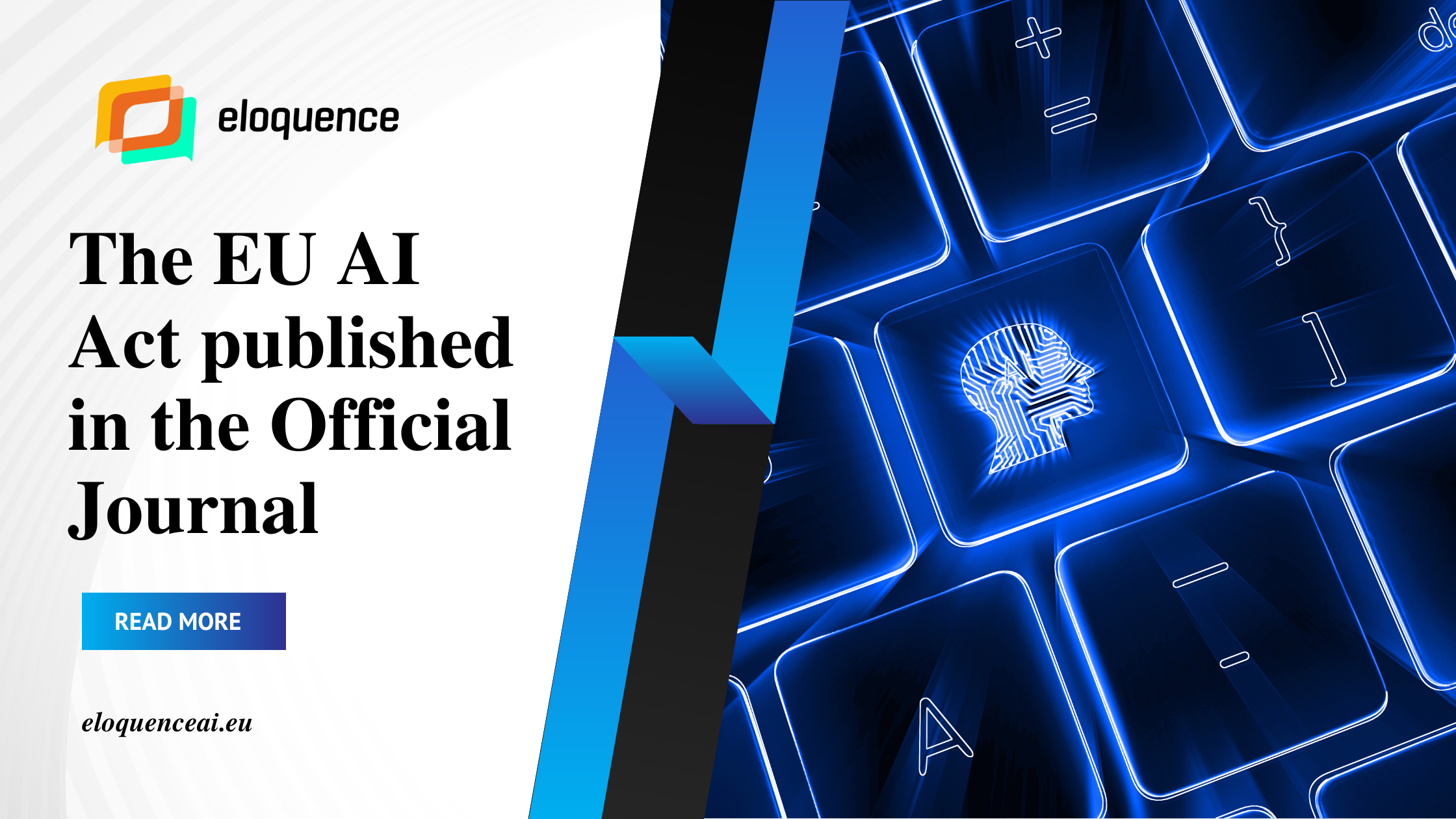Today, on 12 July 2024, the EU AI Act was published in the Official Journal of the European Union, following the adoption of the “Regulation laying down harmonised rules on Artificial Intelligence” (AI Act) by the European Parliament and the Council of the European Union. Starting from the 1st of August, the AI Act will enter force and will be applied directly to all 27 member states.
Following Steps in the European AI
Most of the provisions of this Act will be applicable after the 2nd of August 2026, but during the period between, the numerous accompanying measures such as delegated acts, guidelines and standards will be published. The establishment of the European AI governance structure will ensure standardised, legally compliant and coordinated implementation and enforcement of the AI Act.
The AI Act is a risk-based and graduated regulatory approach – the higher the risk, the earlier the provisions of the AI Act will apply. Because of that, some of the provisions will be applied in the following six months.
These provisions refer to the AI systems that are used for emotion recognition in workplaces and in education, predictive policing, social scoring, and the exploitation of human vulnerabilities, as well as AI systems that carry out biometric categorisation systems based on sensitive characteristics.
The 12 months after entry into force AI Act will uncover chapters such as “Notifying authorities and notifying bodies”, “General purpose AI models”, “Goverance”, “Sanctions” and “Confidentiality”.
36 months after entry into force AI Act will apply provisions for high-risk AI systems. These AI systems are products covered by EU harmonisation legislation referred to in Annex I of the AI Act or a safety component of such products.
The AI systems which are part of specified large-scale IT systems developed by the EU law in the area of freedom, security and justice and available in the EU market or are in operation before 2 August 2027 do not have to meet the requirements of the AI Act until 31 December 2030.
The regulation introduced by the AI Act has a complex schedule of deadlines and transitional periods. This could be considered as being a reiteration of the risk-based approach concept that is present throughout the AI Act. The regulations remain ambiguous up to the present time to some extent about the provisions that are labelled as ‘grandfathering’. In this regard, it is expected that the European Commission will release similar guidelines soon to diminish the existing levels of confusion.
For more information:
https://cms-lawnow.com/en/ealerts/2024/07/eu-s-ai-act-published-in-official-journal-transition-periods-now-known
https://www.dataguidance.com/news/eu-ai-act-published-eu-official-journal#:~:text=On%20July%2012%2C%202024%2C%20the,August%202%2C%202026%2C%20except%20for
https://techcrunch.com/2024/07/12/eus-ai-act-gets-published-in-blocs-official-journal-starting-clock-on-legal-deadlines/


